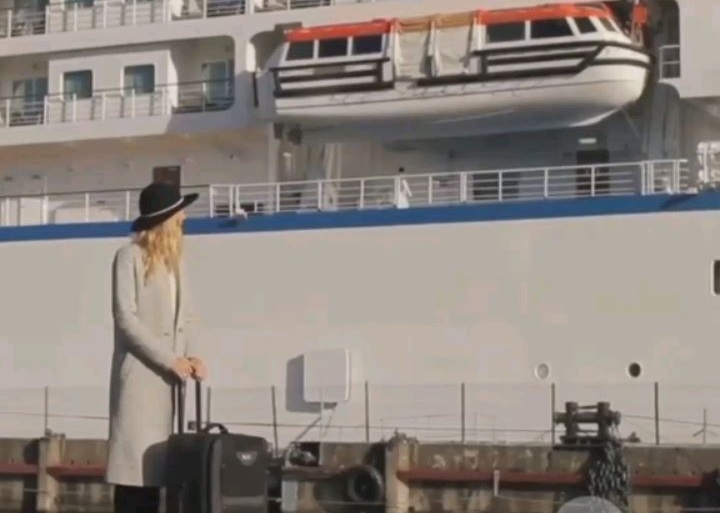The Vanishing of Sarm Heslop: Caribbean Still Haunted by an Unanswered Mystery

CCTV from St John shows Sarm Heslop boarding a dinghy with her boyfriend and vanishing into the Caribbean night. Three years later, with no body, no charges, and a trail of contradictions, the question of what happened continues to haunt paradise.
The Last Walk, the Island That Never Forgot
It looks so ordinary you could miss it. A couple walking hand in hand along the Cruz Bay dock, the water lapping at the pilings, the island quieting into night. They step into a small dinghy, its outboard coughing before carrying them toward Siren Song, the £500,000 catamaran where they lived. That was 7 March 2021. By dawn, 41-year-old Sarm Heslop was gone.
The newly released footage, verified by island police and shared with the BBC, confirms this was the last time anyone saw her alive. To her friends, it is a cruel kind of evidence. “She was always up for a new challenge… totally run-of-the-mill for Sarm to just be doing something bonkers,” her friend Zan told the BBC. That spirit carried her across the Atlantic in 2019, chasing anchorages and adventure. It ended, inexplicably, in the waters off St John.
Her boyfriend, American charter captain Ryan Bane, insists she must have drowned. He told investigators he believed she either slipped while swimming or fell overboard unnoticed while he slept. But in the Caribbean, bodies are found. “In the three years I have been here, we’ve had people go overboard, but we’ve never had the body go missing,” Commander Jan League of the U.S. Coast Guard told the BBC.
For Sarm’s mother, Brenda, the absence of answers is its own kind of torture. “We still haven’t been able to grieve properly,” she said. “We all deserve to know what happened to her and to bring her home. It’s just so, so unfair.”
An Hour Off the Clock
The CCTV footage did more than confirm she boarded the dinghy—it fractured the timeline. In Coast Guard records, Bane told authorities they returned to Siren Song around 10 p.m. Yet the footage shows them pushing off from Cruz Bay at 8:45. The short trip should have put them aboard by 9 p.m. So why the lost hour?
Island police chief Steven Phillip acknowledged to the BBC that the gap remains unexplained. “We’re at a dead end,” he admitted. “If anybody could look at this video and see something and say something it can help. That’s why now.” Police Commissioner Mario Brooks was more blunt: “The timeline is suspicious, and that’s one of the reasons why we need to talk to Ryan.”
Bane’s attorney, David Cattie, dismisses the suspicion as “irresponsible.” In his view, the difference reflects a stressed man guessing at times in the chaos of a disappearance. He maintains that Sarm “perhaps hit her head and fell overboard” or “became disorientated while swimming, lost her way and drowned.” To him, there is no mystery hour—only a tragedy.
To investigators, it still matters. “There was… nothing of evidentiary value that points to Sarm having contact with anyone that night, outside of Ryan,” Brooks told the BBC. Without clarity, suspicion festers in every gap.
Protocols, Rights, and a Boat No One Could Search
According to Bane, he discovered Sarm missing around 2 a.m. after an anchor alarm went off. At 2:44 a.m.—barely half an hour later—he gave a short statement to police ashore. They say they instructed him to call the Coast Guard immediately. Records show he did not place that call until nearly noon, nine hours later.
“Ultimately it’s always the captain’s responsibility [when a person is missing],” Commander League explained. “Minutes count at that point. So waiting nine hours is decreasing the possibility of finding a person in the water.”
Two captains anchored nearby told the BBC they were never alerted. Maritime practice dictates immediate mayday calls, shouted searches, and coordination with neighboring vessels. Cattie conceded that his client “didn’t do everything you would say a boat captain is absolutely supposed to do,” but insisted: “There’s no evidence he had a hand in her disappearance.”
The investigation soon ran into a wall of rights. When police sought to search Siren Song, Bane invoked the U.S. Constitution’s Fourth Amendment. Only a routine Coast Guard safety inspection was permitted. He declined formal questioning, citing the Fifth Amendment. “There are tonnes of people who had nothing to hide… that wind up in jail for something they didn’t do,” Cattie told the BBC, defending the strategy.
Five weeks later, Bane left the islands. He has not returned. The catamaran was quietly listed for sale. For Sarm’s family and friends, the refusal to allow a full forensic search remains a wound. Former Metropolitan Police officer David Johnston, advising the family, told the BBC that in Britain the case would likely have been treated from the start as “a missing person where there is crime involved.” That would have triggered immediate arrests and questioning.
Police in the U.S. Virgin Islands say the case remains open. They continue to name Bane as their only person of interest. His lawyer counters there is no warrant, and that Bane would return voluntarily if required. The standoff continues, a dance of law and silence.

I@vi_outlet
Grief That Refuses to Sleep
Before she disappeared, Sarm’s life was vivid. She had set sail in 2019 with friends, hopping island to island—St Lucia, Guadeloupe, Dominica, Martinique—her phone full of sea-drenched photos. Seven months later, she met Bane. He offered luxury charters; she became the chef. By March 2021, they had completed her first charter together. That evening, they dined ashore before returning to the boat. Hours later, she was gone—passport, phone, and money left behind.
Understanding a disappearance often means revisiting a partner’s past. The BBC interviewed Bane’s ex-wife, Cori Stevenson, who described an assault in 2011 that ended their marriage. She said Bane once knocked her down, choked her until she passed out, and broke her teeth. He pleaded guilty to domestic violence simple assault, served 60 days in jail, and the couple divorced in 2014. “When he was in that weird rage… his eyes would go completely black,” she recalled.
Cattie acknowledges the conviction but stresses there is “absolutely no indication” of violence between Bane and Sarm. For her friends, the story raises unavoidable doubts. For investigators, it highlights a pattern they were never permitted to test aboard Siren Song.
Sarm’s circle clings to what little remains. They had hoped the CCTV might reveal something—a hesitation in her step, a look exchanged on the dock. Instead, it shows only an ordinary scene. “Beyond confirming that she did get on board the dinghy, the CCTV didn’t tell [us] much,” one friend admitted to the BBC. That, perhaps, is the cruelest truth: how a life can look whole right up until the moment it vanishes.
Her mother wakes each morning into the same unanswered night. “She was the love of my life, my baby girl,” Brenda told the BBC. “I think knowing that I’m never going to see her again—I’m really heartbroken. But I am stronger now and I’m going to do everything I can and I’ll never give up.”
Also Read: Colombian Survivor of the Warsaw Ghetto Built A Century of Renewal
On St John, people still talk about Sarm—at the dinghy dock, in Cruz Bay bars, over radios at sea. They remember the couple idling away from shore, the wake fading into the dark. The Caribbean swallowed that image and has given nothing back. The unanswered question, whispered across the island, is what happened after the camera blinked, after the stern light disappeared behind the headland, after the island closed its eyes.





